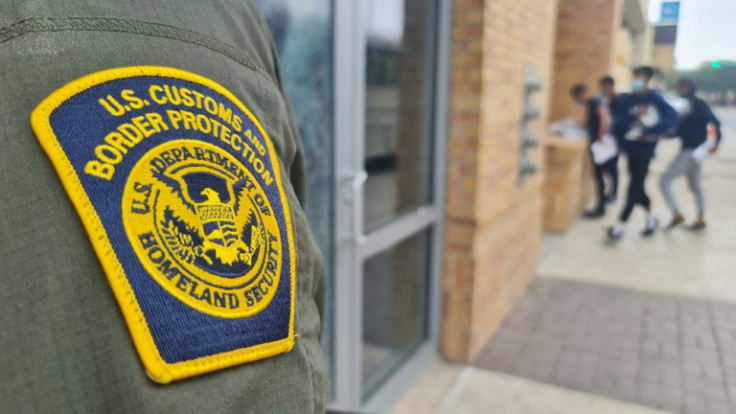US Readies For Migrant Influx As Covid-era Border Rules Lapse

The United States is girding for the arrival of thousands of migrants this week, with the expiry of pandemic-era rules that have made claiming asylum at the border all-but impossible.
The country's deep divisions over immigration are expected to be laid bare as a wave of people try to get a foothold in a place founded on the promise of safety and shelter, but where a rising tide of nationalism makes the welcome uncertain.
Some migrants escaping economic and political turmoil have already arrived, frustrated by the years-long lack of a legal pathway, squeezing through the holes that pockmark the 3,100-kilometer (1,900-mile) border between the world's wealthiest country and its southern neighbor.
The Texan cities of El Paso, Brownsville and Laredo have declared a state of emergency, as they struggle to cope with hundreds of people -- most from Latin America, some from China, Russia and Turkey -- who are already there.
In El Paso, people sleep on the streets, cowering from the sun under sheets, or sleeping on cardboard. Grubby children beg for change.
The city's mayor, Oscar Leeser, said his officials were readying for many more on Friday, judging by a recent tour of the neighboring Mexican city of Cuidad Jaurez.
"On the street we estimated somewhere between eight to 10,000 people," he said.
"There is a caravan... that will be here probably close to May 11, so I say the real number that we'll be dealing with is between 12 to 15,000 people."
The surge is expected because of the expiration of Title 42 on Thursday at 11.59pm, Washington time.
The rule was put in place under Donald Trump, ostensibly to prevent people with Covid-19 from entering the country. In practice it has been little more than a crude tool to swiftly expel those trying to migrate, without accepting their asylum claim.
From Friday, migrants will once again be able to lodge asylum claims and to have their cases dealt with through the legal system, a process that can take years.
President Joe Biden's administration is under pressure from Republican Party opponents who claim immigration is out of control. Some in the party forecast over a million people will arrive at the border in the next three months.
With a presidential election 18 months away and immigration a regular fault line in the country's fractious politics, Biden is hoping new rules -- and 1,500 active duty troops he has ordered to the border -- will help staunch that flow.
Under the post-Title 42 arrangements, people who cross illegally will find it much harder to prove their case for asylum.
Those who are rejected will be deported to their home countries or back to Mexico, and barred from trying again for several years.
Texas Governor Greg Abbott on Monday poured scorn on Biden's plans, saying the administration was "laying down the welcome mat to people across the entire world."
He ordered hundreds of Texas National Guard soldiers to the frontier "to help intercept and repel large groups of migrants trying to enter Texas illegally."
Under the new rules, would-be migrants are being encouraged to make their asylum application on an app, and to enter the country through regular ports.
But for those gathered in Ciudad Juarez, the CBP One app is frustrating, with repeated glitches and difficulties getting an appointment.
Some have decided to abandon it and try their luck surrendering to US border patrol at one of the official crossings, but that is also problematic.
"They just come and tell us that they will receive us, but they never come back," said Marjorie, a Venezuelan mother of two children, aged two and five, said of border guards.
"They tell us to stay calm, to wait here, but they never come. We don't know why."
A system that allows a limited number of Venezuelans to apply for asylum has been in place for several months, but it has been overwhelmed by the sheer number of those looking to flee their dysfunctional homeland.
In far-southern Brownsville, a makeshift processing center has been established at a baseball field.
Hundreds of people -- many Venezuelans -- are already on the streets, where the atmosphere is tense after eight migrants were killed when an SUV plowed into a crowd at a bus stop on Sunday. Ten people were injured, some critically.
The driver, George Alvarez, has been charged with manslaughter.
In El Paso, traditionally the busiest border crossing, authorities are readying empty schools to use as shelters, and ramping up transport to help migrants get where they want to go -- places they have family or friends, or the offer of work.
The city's mayor, Leeser, says such sticking plaster solutions need a permanent fix.
"The federal immigration laws are broken," he said.
"There is no endgame. There is no finish to this and we really need to figure out where we're heading."
© Copyright AFP 2024. All rights reserved.





















